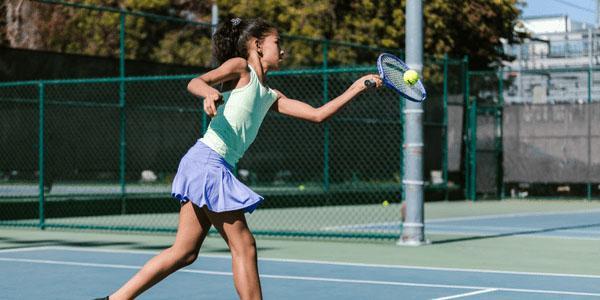Recruiters Evaluate Your Mental Game
Young athletes who want to be recruited for college athletics, take heed: recruiters care about kids’ mental game.
College coaches can learn about kids’ mental game in a number of ways, says 2aDays CEO and founder Keirsten Sires, an athlete who played tennis and soccer at Skidmore College and recently spoke to us during our most recent Ultimate Sports Parent podcast interview.
Her company provides college coach ratings and experiences from athletes about recruiting.
Recruiters learn about athletes’ mental game by talking to high school coaches, watching games and reviewing game videos.
For example, they might see a player getting angry at another player in a video. That will work against them–as well as other negative demonstrations of emotion, says Sires.
Kids need to show that they have positive attitudes, work hard, are team players and don’t throw temper tantrums.
In order for kids to demonstrate that they have a positive mental game, they need to be at their best with both high school coaches and college recruiters, she says. High school coaches will talk to recruiters about their experiences with players.
One common mental game obstacle that sports kids encounter in high school is lack of playing time, says Sires. Kids can best address this by politely communicating their concerns to coaches and asking what they can do to gain more playing time.
They need to show up early, follow instructions and be good teammates. If athletes do this, it’s likely their coaches will have positive things to say to recruiters about their mental game, she says.
In addition to demonstrating their positivity, kids should have the confidence to take the initiative with recruiters, instead of having their parents communicate with them, says Sires.
One of the biggest problems Sires hears about from college coaches: Emails come from parents’ email address, not the athletes’ email. They want to hear directly from the kids, not the parents.
And parents need to know that their behavior on the field can hurt kids’ chances of being recruited.
Parents need to keep their cool. In one case, a college stopped recruiting an athlete because one of his parents punched a ref in the face during a game the recruiter attended.
“The mental game component is huge in recruitment,” says Sires. “At the end of the day being a team player is first and foremost, but also players need to make sure they can control their emotions.”
Related Articles on Youth Sports:
- The Link Between Sports Kids’ Mental Game and Mental Health
- Yes, College Recruiters Evaluate Players’ Mental Game
- Strong Mental Game Helps Pro Basketball Player Thrive
*Subscribe to The Sports Psychology Podcast on iTunes
*Subscribe to The Sports Psychology Podcast on Spotify
The Composed Sports Kid

“The Composed Sports Kid” audio and workbook digital download program for young athletes and their parents or coach helps kids cope with frustration and anger in sports. Help your sports kids learn how to manage expectations and let go of mistakes so they can keep their head in the game.
The Composed Sports Kid system is really two programs in one–one program to train parents and coaches how to help their kids practice composure, and one program that teaches young athletes–ages 6 to 13–how to improve composure, let go of mistakes quickly, have more self-acceptance, and thus enjoy sports more!

